The reckoning
A perspective from Jessie Roske, MD
There’s been a lot of talk about “getting back to normal.”
But for the thousands of hospital workers who are exhausted from this pandemic, normal has all but disappeared. Hospitalist Jessie Roske, MD, recognizes the ongoing needs of the community requires healthcare workers to move forward, but she’s also acutely aware that she and her colleagues have yet to truly reckon with the past two years.
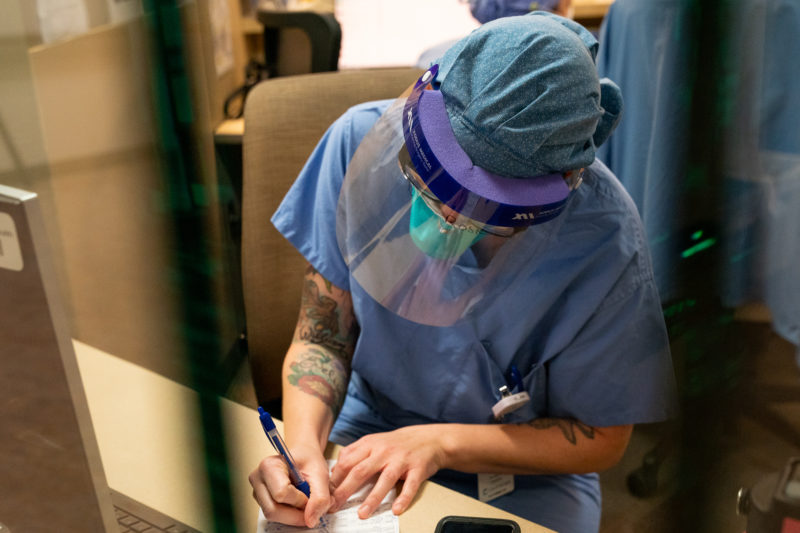
Feels like a pivotal moment
“How do we acknowledge our individual traumas, our collective traumas, try to work through it, try to heal from it, and still say, ‘but we need to move to the next phase of things?’ I think institutionally, trying to balance those two things, is going to be an extraordinary feat.”
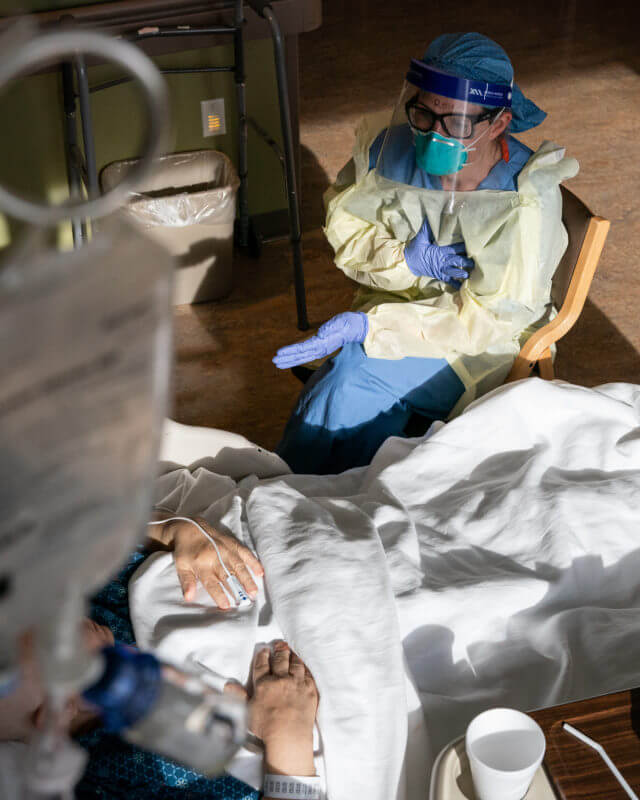
While caregivers feel like they’ve been through a war, many of their neighbors and relatives survived relatively unaffected. Roske says the dissonance between the two experiences is jarring.
“Lately I find myself questioning ‘was it as bad as I remember?’” she said. “Everyone seems to have moved on and so sometimes I gaslight myself over the past, like, maybe it wasn’t as bad as I remember. Was this whole thing overblown? And then I remember specific episodes and events and think, ‘No, no, we were right. This wasn’t overblown – this was awful.’”
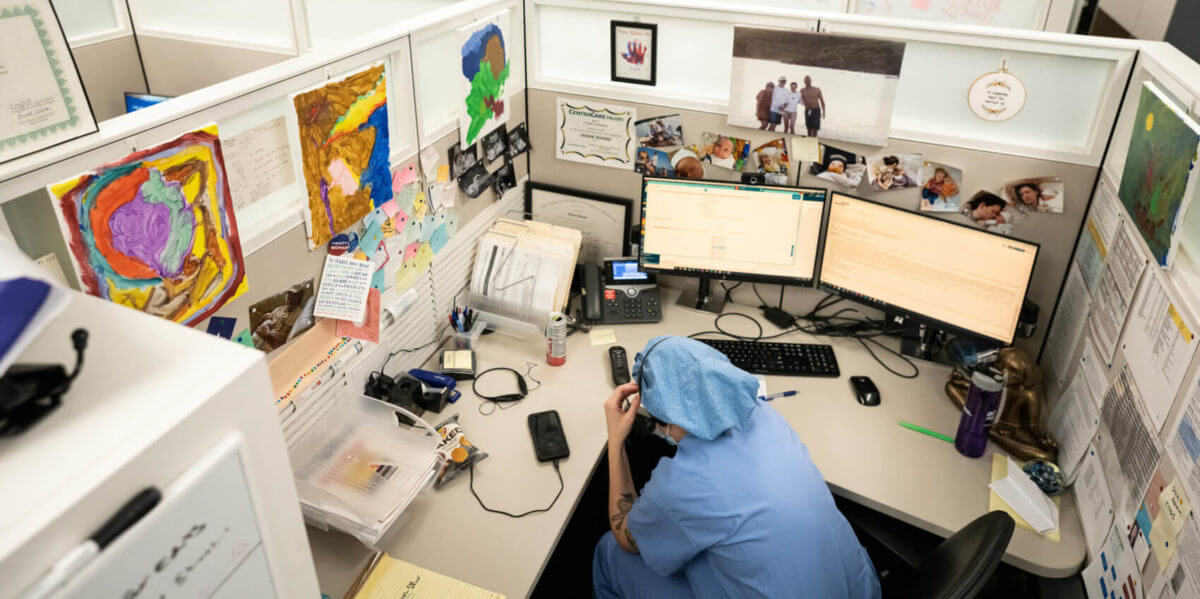
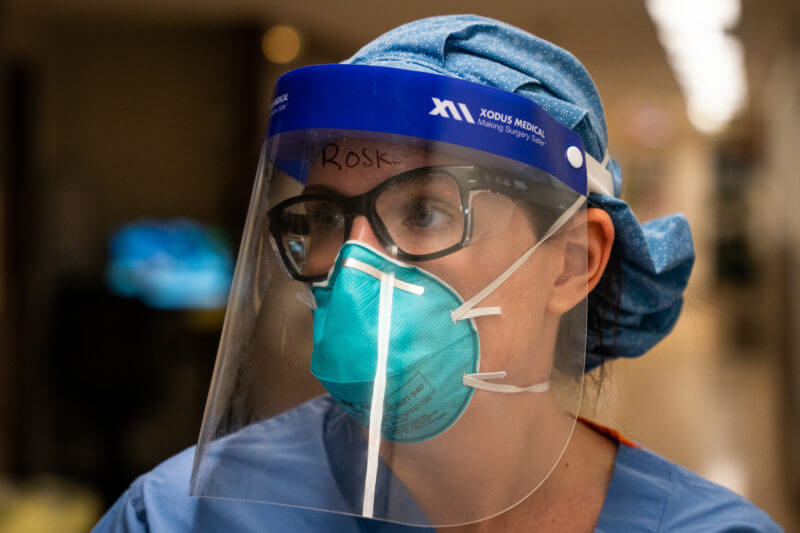
Moral distress
The reckoning for Roske is both personal and professional. She says the American healthcare infrastructure simply was not ready to triage and ration care.
“We kid ourselves that we never got ‘crisis standards of care’ declared by the government, so it never actually happened. But the ethical definition of ‘crisis standards of care’ is when you have to adjust your care delivery in such a way that it could reasonably be expected to change an outcome. And that happened.”
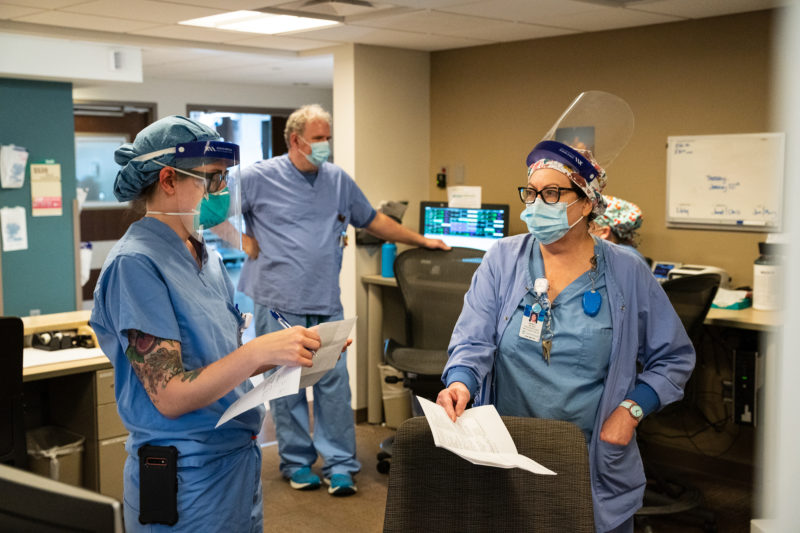
The moral distress of making such weighty decisions may not be as present as it was during the height of the pandemic, but it’s not gone, either. And that is what Roske is wrestling with.
“The pandemic is not over. But it’s slipping into something differently before my eyes. As an institution and personally, is there going to be a moment? No one’s going to hold up a banner that says, ‘Now you must pay attention to the trauma you set aside.’ So how do we know? How do we know that we need to pivot back to that and how do we pivot back to that with intentionality?”
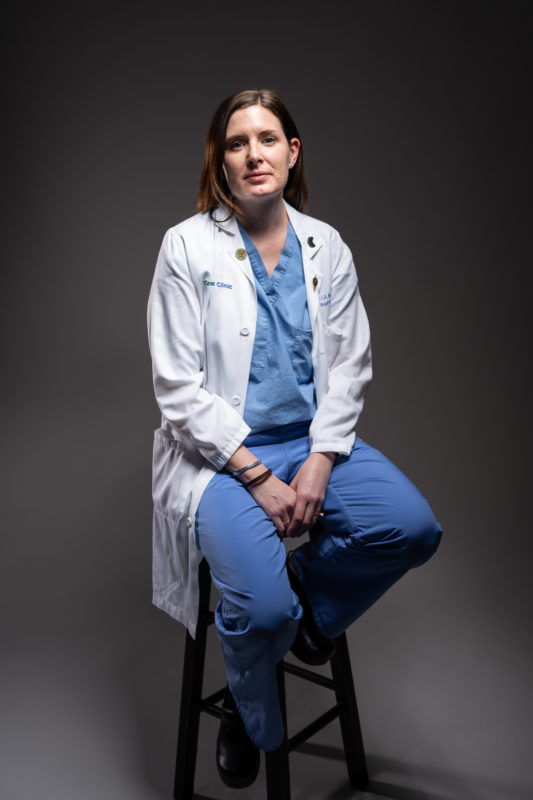
Roske also worries about continuing to provide quality care when so many on staff have burned out. And that has her coming back to purpose.
“The only thing I can think of is somehow making an organization where people feel a purity of purpose can be found here and the organization cares enough about them that they want to be a team member here.”
Acknowledging that’s a difficult task for any large institution, Roske believes it will be key to retaining people whose altruism and commitment are needed more than ever.


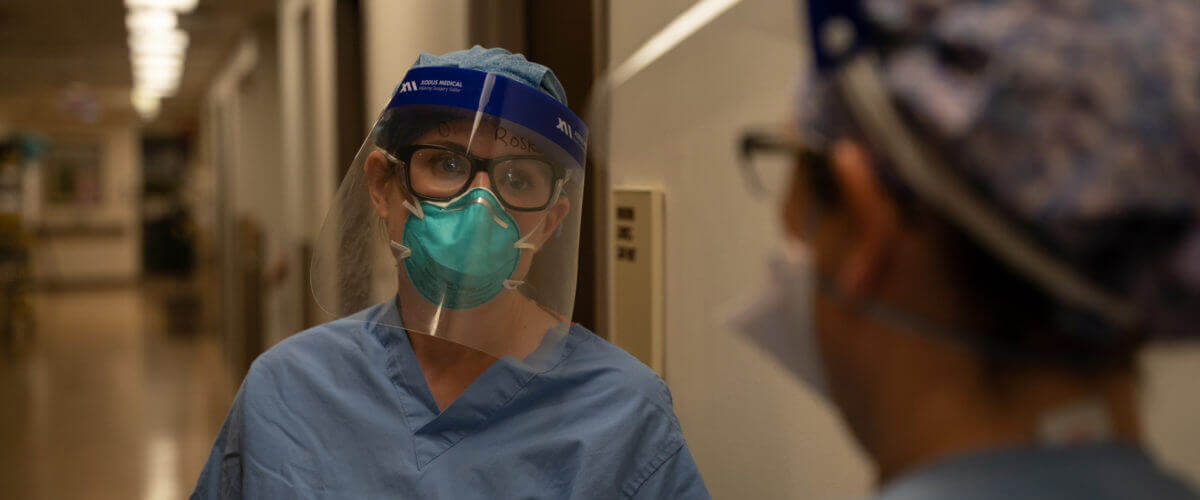





Thanks so much for your wonderful words. They are so good to hear!
Your honesty is welcoming. Thank you for all your hard work.
I not only appreciate your commitment throughout all this, Dr. Roske, but your authenticity and honesty. Thank you from the depths of my heart.
Thank you for sharing your thoughts and experiences, Jessie. I think it is so critical, like you pointed out, to still be able to address the trauma that was experienced and at the same time continue forward. But the biggest challenge is, how is that accomplished?… Thank you for asking the hard questions, even if there are no good/perfect answers for them. Thank you for enduring the hard, the ugly, the gut wrenching decisions and continuing to show up and do the same today. I am hopeful that more resources will continue to surface to help cope, process, and work through all that has taken place. Thank you for all you have done and continue to do. <3
I believe this has changed all of us. I thank God that it made many of us stronger and more empathetic Healthcare workers. It really tested many of the workers and made them answer the question ” What is most important to you?”